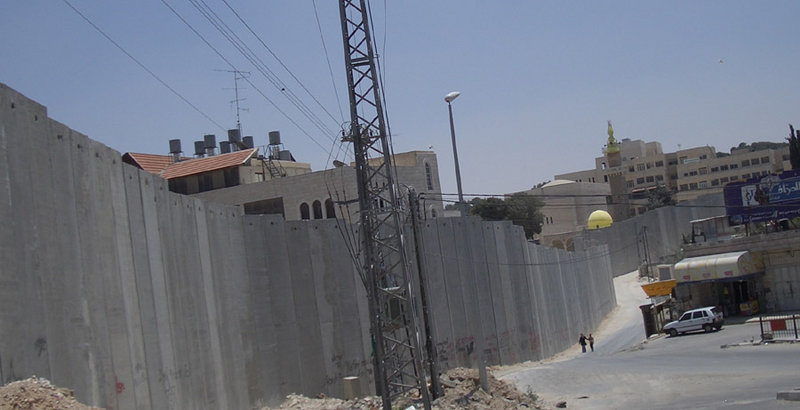
You may have noticed a lack of coverage of Israeli Apartheid Week in New Voices this year. This was, in part, intentional. For those who don’t know, I.A.W. is a international campaign, sponsored in part by Students for Justice in Palestine, to hold rallies, speakers, and performances on campuses worldwide to spread awareness of the apartheid in Israel for the sake of promoting the Boycott Divestment and Sanctions movement.
The problem with this event is that it is not based on reality. The situation for Palestinians is nothing short of dismal and horrifically unfair, but that doesn’t make it apartheid, it makes it the Israeli Occupation of the West Bank and Gaza—a whole separate and unique historical situation. Like the J Streeters at Georgetown, I think that the situation can only be effectively dealt with if we see it for what it is, not for what it isn’t. And don’t take my word for it, Mahmoud Abbas himself recently spoke out against the wisdom of the B.D.S. movement. In South Africa no less. While we can debate the effectiveness and wisdom of Abbas’ policies all day long, I don’t claim to know what’s best for the Palestinian people more than he does, and certainly guilty American liberals (a group into which I proudly fall on most other issues) shouldn’t either.
For the record, I don’t think the pro-Israel community on campus typically presents its case much more honestly in Israel’s defense. When I was at the University of Pittsburgh, Panthers for Israel and other self-described pro-Israel groups countered I.A.W. with “Israeli A-Party-Tied Week,” a table in a prominent part of campus where students could make blue-and-white tie-dyed shirts and learn about why Israel is the best place ever. I didn’t take part in this and offered my friends a lame excuse for why not. At the time, I didn’t have the heart to tell them that I thought it was juvenile, trivialized the real suffering of innocent Palestinians under Israeli occupation, and likewise impeded open and honest debate. Now, after having lived in Jerusalem for two years and seen the conflict up-close from all sides, my only regret is not speaking up when I had the chance. So, yes, the pro-Israel side isn’t always particularly tactful in getting its message across, either. But since when has New Voices ever paid much attention to them?
The wiser course of action was, I think, brilliantly articulated by Zev Hurwitz in a piece on New Voices yesterday. In his editorial, Hurwitz argues that if you directly protest B.D.S., regardless of the outcome of the vote, you will just have to fight the same battle every few years anyway, seemingly into perpetuity, over divestments that are, at best, theoretical and will have little to no practical impact on anything. Rather, he argues, Jewish communal energies would be better spent doing good things on campus in the name of Israel and Judaism, and he gives examples to show the success of this strategy.
I have taken the same approach with New Voices. We’re just going to keep on publishing articles showing the intelligence, depth, passion, and diversity a conversation among young people on Israel and other important issues can have and hope that someday the organizers of I.A.W. (and many of their pro-Israel counter-protesters) will be ready to join us.
Derek M. Kwait graduated from the University of Pittsburgh and is the editor in chief of New Voices.

